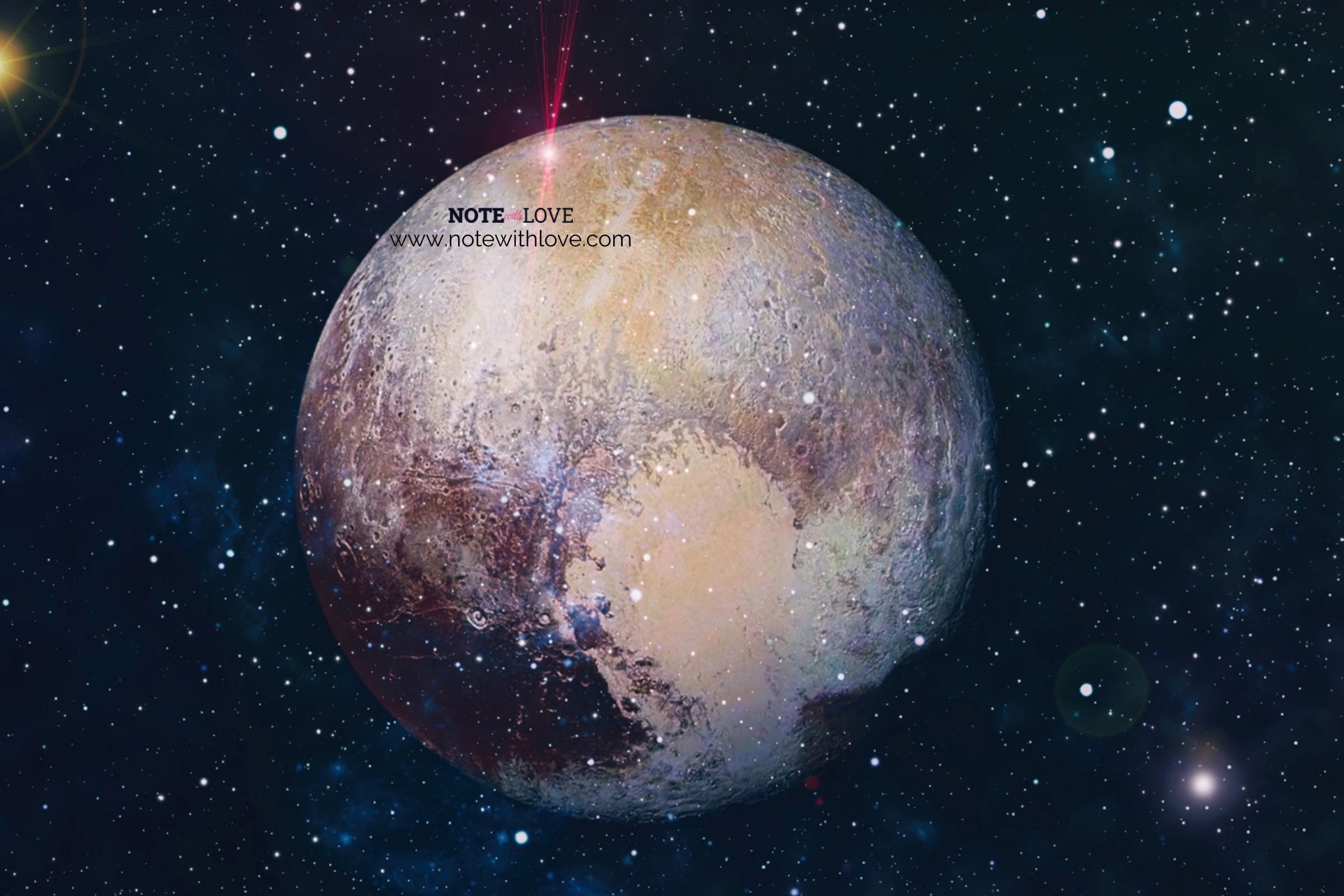- Appreciation
- Appreciation
Pluto Day
by Note with Love Team - Feb 19, 2025
It is time to rejoice in remembrance of an extraordinary yet perplexing aspect of our solar system: Pluto. Although still blanketed in an enigma, Pluto's allure intrigues space enthusiasts and astronomers. This blog aims to cover the history, origin, and overwhelming significance of "Pluto Day " and provide ideas on celebrating the occasion.
Key Takeaways:
- Pluto Day is celebrated on February 18th, marking the discovery of Pluto in 1930.
- Pluto was discovered by Clyde Tombaugh; reclassified as a dwarf planet in 2006.
- Pluto's orbit takes 248 years to orbit the sun.
- It is located In the Kuiper Belt, beyond Neptune’s orbit.
- Pluto helps us understand the early solar system and planetary science.
What Is Pluto Day?
As its title suggests, Pluto's Day is meant to celebrate Pluto and its significance in the solar system. For much of the twentieth century, Pluto was known as the "ninth planet" until its demotion to dwarf planet status. This caused great controversy and unrest regarding its position in the cosmos. As people celebrated Pluto Day, it was also a chance to reflect on its discovery, scientific studies, and ongoing importance in space research.
However, in stark contrast to typical astronomical holidays, Pluto's Day allows us to appreciate the vast stretches of the Kuiper Belt, the region beyond Neptune's orbit where Pluto and several other icy celestial objects lie.
Brief History Of Pluto Day
Pluto was considered the ninth planet of the solar system since its discovery in 1930 by Clyde Tombaugh, an American astronomer. But it was demoted to a dwarf planet in 2006. This reclassification decision created controversies among the general population and the scientific community.
Just like the Fourth of July is Independence Day, Pluto Day is celebrated on February 18th to mark the discovery Pluto in 1930. This teaches us that we have much more to uncover about the universe!
Even though Pluto no longer has the prestigious title of the 9th planet, its relevance will always be retained throughout the globe. Pluto Day serves as a memorial of the dwarf planet, which is now positioned in the chilly regions of the solar system along with other fascinating objects in the Kuiper Belt.
When Is Pluto Day?
Pluto Day is celebrated on February 18th every year. It's celebrated on this date because Clyde Tombaugh discovered Pluto back in 1930. This date emerged as one of the most important markers in the history of space exploration. Although Pluto was demoted to "dwarf planet" in 2006, its legacy is celebrated nationally every year on Pluto Day. It is a chance for everyone to appreciate this distant world in our solar system
Pluto Day, in some regards, brings focus toward other areas of planetary science, such as moons, ring systems, gas clouds, magnetospheres, and many more.
Pluto Day Dates
| Year | Date | Day |
| 2025 | February 18 | Tuesday |
| 2026 | February 18 | Wednesday |
| 2027 | February 18 | Thursday |
| 2028 | February 18 | Friday |
| 2029 | February 18 | Sunday |
| 2030 | February 18 | Monday |
Ways On How To Celebrate Pluto Day
You do not have to be an astronomer or a space lover to commemorate Pluto Day - anyone interested in knowing our world can join in.
So, here are some ideas to help you celebrate Pluto Day creatively:
1. Stargazing
This day allows you to observe the night sky. If you have a telescope, it is best to use it on this day.
While most amateur telescopes do not allow direct viewing of Pluto, many Kuiper Belt objects can be seen. This allows you to appreciate the beauty of our solar system!
2. Learn More About Pluto
Did you know Pluto's orbit takes 248 years to revolve around the sun? You can celebrate Pluto Day by learning amazing facts like this! So, check your local observatories or science museums for information on Pluto. You can also find articles, documentaries, and websites about the Kuiper Belt, Pluto, and other celestial objects.
Knowing more about the dwarf planet will help you appreciate it even more, especially understanding how it was once considered the 9th planet of our solar system.
3. Educate Others
Tell others about Pluto and its extraordinary history! You can share fun Pluto facts on social media! You can discuss Pluto Day, why it was the ninth planet and its current implications for scientific research.
4. Hold a Pluto Day Celebration
Plan themed parties where friends and family can learn more about Pluto and the Kuiper Belt, watch documentaries, and hold space exploration trivia competitions. This is a relaxed yet informative way to celebrate the day, especially for those who love knowing about unknown planets and such!
Pluto's Role In The Kuiper Belt
Pluto is located within the Kuiper Belt, a largely unexplored region populated by icy dwarf planets and other objects situated beyond Neptune's orbit. Pluto and many other similarly sized dwarf objects are thought to be the leftover building materials of the solar system's formation.
The Kuiper Belt acts as a frontier in planetary science because of the potential data it holds. These objects might unveil the solar system's evolutionary history in its early stages. Pluto's existence in the Kuiper Belt was instrumental in our understanding of planetary definitions, leading to its reclassification from the ninth planet to a dwarf planet.
With every new scientific mission, like NASA's New Horizons, we learn more about Pluto's surface, atmospheric dynamics, and other characteristics and further understand the Kuiper Belt. Each year, as we learn more about Pluto and its neighbors, our new knowledge leads to exciting space discoveries.
Conclusion
The significance of Pluto Day serves as an essential reminder of how we learn something new about our universe each day. While Pluto is no longer considered the ninth planet, it remains a key player in the Kuiper Belt. Moreover, Pluto Day is an occasion to appreciate the significance of exploration and progress towards peace. By celebrating Pluto’s amazing milestones, we hope to inspire future generations to explore the incredible mysteries hidden on Earth and beyond.
Trending in Notes
If I had a dollar for every time you’ve made my life better, I’d be the richest person in the world. Here’s to you, my love—happy birthday!
I may have taken you for granted at times, and things may have been tense or uncomfortable recently. But I do want you to know how much I value you and how happy I am to have you in my life. This Thanksgiving I am thankful that I have you.
You May Also Like


- Appreciation
Valentine's Week: A Celebration of Love

- Appreciation










